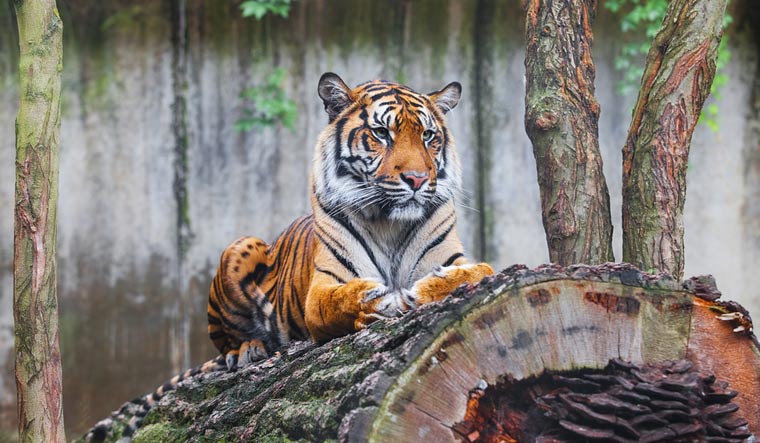The Central Zoo Authority (CZA) on Monday asked all zoos across the country to be on high alert and collect samples fortnightly after a tiger at a US zoo tested positive for coronavirus.
In a letter to all states and Union territories, CZA Member Secretary S.P. Yadav said the United States Department of Agriculture's National Veterinary Services Laboratories has confirmed COVID-19 in a tiger at the Bronx Zoo in New York.
"Zoos in the country are, therefore, advised to remain on highest alertness, and monitor animals 24X7 using CCTVs for any abnormal behaviour or symptoms," it said.
The authority said mammals, especially cats, ferrets and primates, need to be carefully monitored and fortnightly samples of suspected cases be sent to designated animal health institutes for COVID-19 testing.
The samples can be sent to the National Institute of High Security Animal Disease in Bhopal, the National Research Centre on Equines in Haryana's Hisar and the Indian Veterinary Research Institute in Bareilly, Uttar Pradesh, the letter said.
"Sick animals should be isolated and quarantined," it added.
No keeper or handler should be allowed in the vicinity of animals without safety gear, preferably personal protective equipment (PPE). They should have least contact with animals while providing them feed, it said.
Zoos have been asked to follow all bio-containment and safety measures required to handle the high-risk pathogen as per the national/ICMR guidelines, the letter said.
"Zoos are advised to coordinate with designated nodal agencies of the government for public health response and permit screening, testing and surveillance as and when required by the nodal agency," the CZA added.
A four-year-old Malayan tiger at the Bronx Zoo in New York has tested positive for the coronavirus infection.
The female tiger, named Nadia, is believed to be the first known case of an animal infected with COVID-19 in the US. It is suspected that she contracted the virus from a caretaker who was asymptomatic at that time of being in contact with the tiger.



